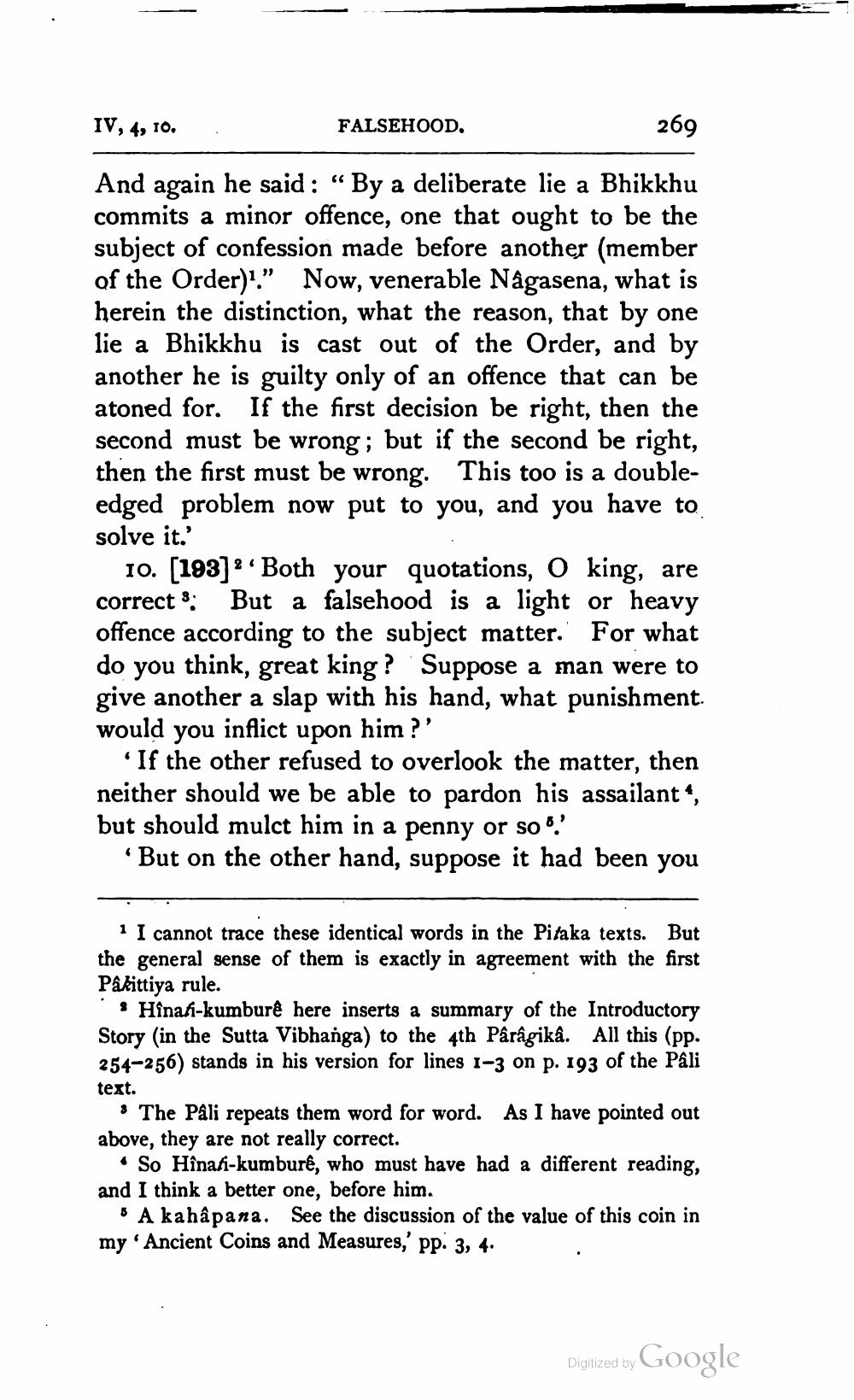________________
269
And again he said: "By a deliberate lie a Bhikkhu commits a minor offence, one that ought to be the subject of confession made before another (member of the Order)." Now, venerable Nâgasena, what is herein the distinction, what the reason, that by one lie a Bhikkhu is cast out of the Order, and by another he is guilty only of an offence that can be atoned for. If the first decision be right, then the second must be wrong; but if the second be right, then the first must be wrong. This too is a doubleedged problem now put to you, and you have to solve it.'
IV, 4, 10.
FALSEHOOD.
24
10. [193] Both your quotations, O king, are correct 3: But a falsehood is a light or heavy offence according to the subject matter. For what do you think, great king? Suppose a man were to give another a slap with his hand, what punishment. would you inflict upon him?'
'If the other refused to overlook the matter, then neither should we be able to pardon his assailant*, but should mulct him in a penny or so "."
'But on the other hand, suppose it had been you
1 I cannot trace these identical words in the Pitaka texts. But the general sense of them is exactly in agreement with the first Pâkittiya rule.
• Hînafi-kumburê here inserts a summary of the Introductory Story (in the Sutta Vibhanga) to the 4th Pârâgikâ. All this (pp. 254-256) stands in his version for lines 1-3 on p. 193 of the Pâli
text.
The Pâli repeats them word for word. As I have pointed out above, they are not really correct.
So Hînafi-kumburê, who must have had a different reading, and I think a better one, before him.
A kahapana. See the discussion of the value of this coin in
my Ancient Coins and Measures,' pp. 3, 4.
"
Digitized by
Google




